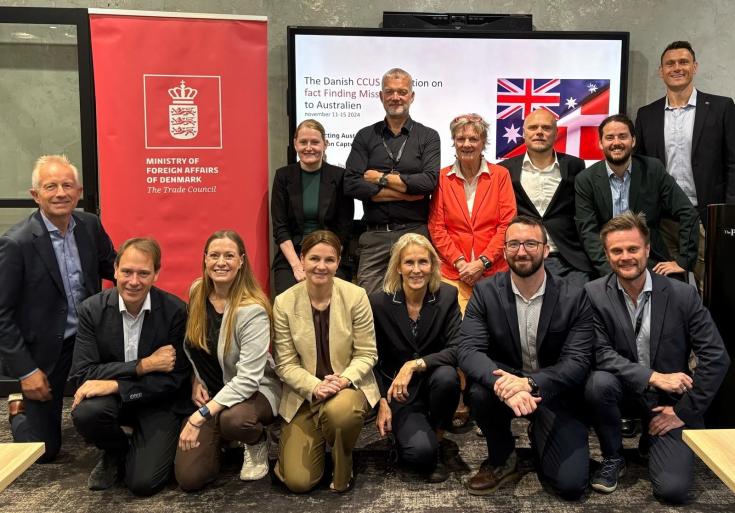Aalborg Explores CCUS and Hydrogen in Australia (DK)
In November 2024, Aalborg Municipality organized a factfinding mission to Australia to explore opportunities for collaboration in carbon capture, utilization, and storage (CCUS), including hydrogen technologies. Their findings can easily be transferred to a European setting.
Strengthening Hydrogen Ties
The delegation met with the Australian Hydrogen Council, which promotes hydrogen use and collaborates with industry and policymakers. Australia’s 2 billion AUD hydrogen tax incentive highlights its ambition to expand the sector, creating opportunities for EU-Australia cooperation in integrating hydrogen into decentralized energy systems.
Australia could also serve as a test bed for PtX technologies, where hydrogen and CO₂ are combined for industry. Unlike most European nations, it places less emphasis on CO₂ origin, increasing availability for research and industrial use.
Key Takeaways
7 Insights:
- Australia has extensive knowledge of carbon capture and storage – less on utilization.
- Great potential for collaboration between companies, technological innovation centers, and universities.
- Australia excels at bringing technologies to market quickly.
- CO₂ storage on land is reliable and operationally secure.
- In Australia, CO₂ is used regardless of its origin/colour.
- Potential in exporting European knowledge and technology.
- Australia is good at citizen dialogue, which is essential to counter public opposition.
3 Recommendations:
- CCUS should support the green transition – not extend fossil production.
- The state must set the framework and take responsibility for financing models, collaboration, regulation, and infrastructure.
- Citizens must be involved, listened to, and ideally benefit from the process.

